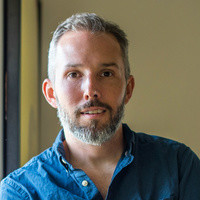Alexis Okeowo, a foreign correspondent, has written for The New Yorker, The New York Times Magazine and Businessweek.
“Nigeria is a deeply sexist country. It can be difficult for people to take you seriously. But that also has its benefits, because it’s very easy to disarm your subjects. If I’m interviewing people who underestimate me, I can get them to open up because they somehow think that I’m naïve or I don’t know what I’m doing. So I don’t mind if some sexist general or banker thinks I’m this young little student who doesn’t know what she’s talking about. As long as you tell me what I want to know, it’s great.”
Thanks to TinyLetter and MarketingProfs for sponsoring this week's episode.










